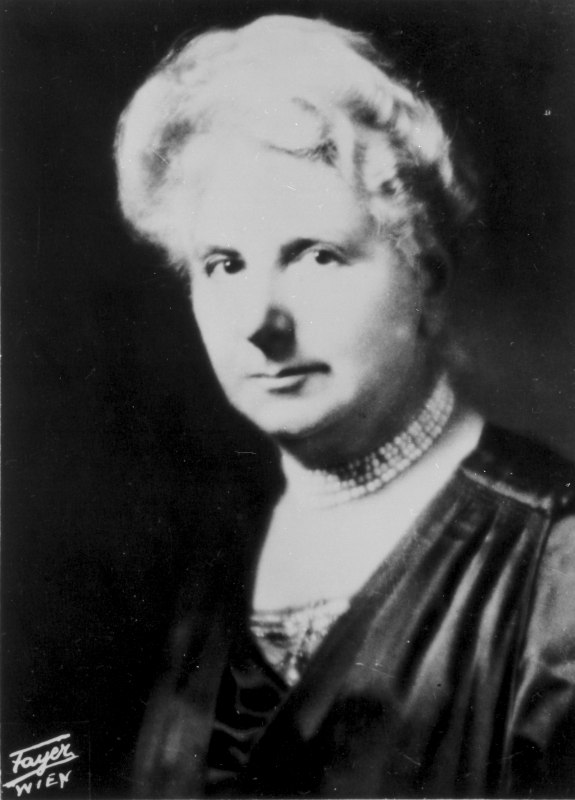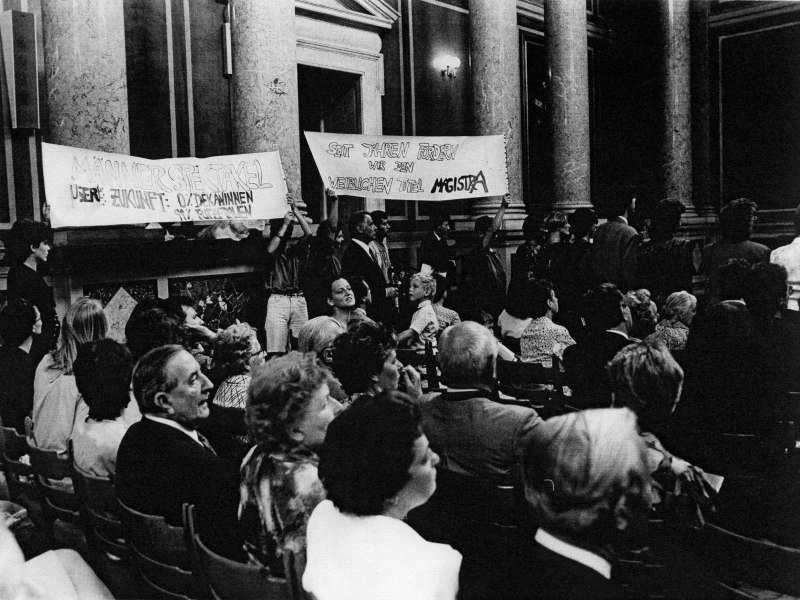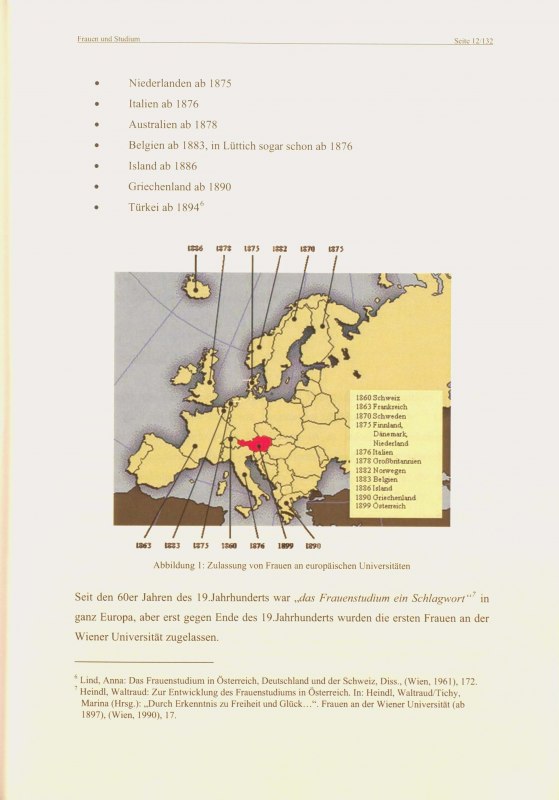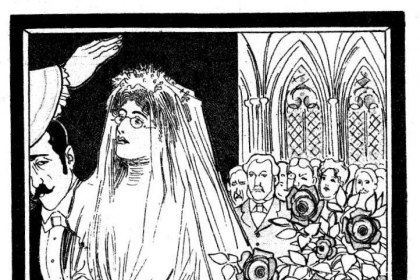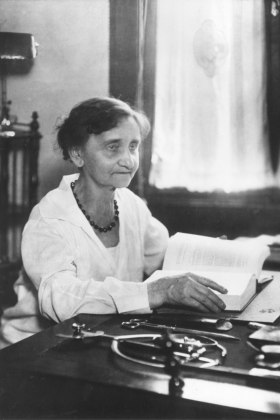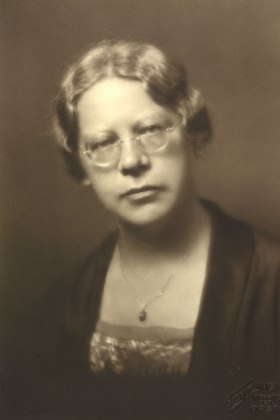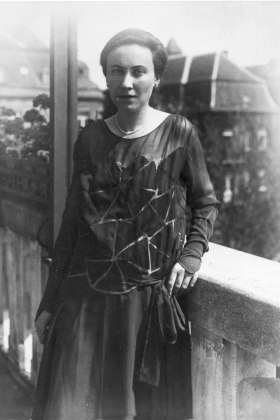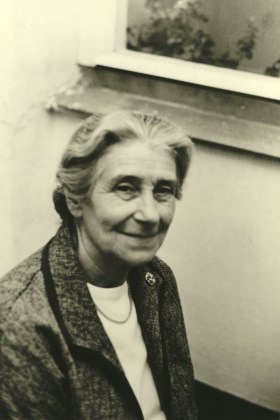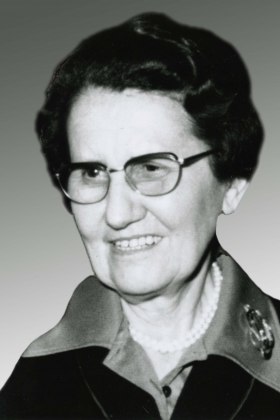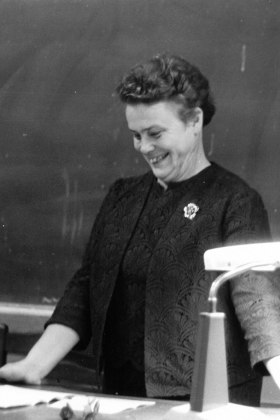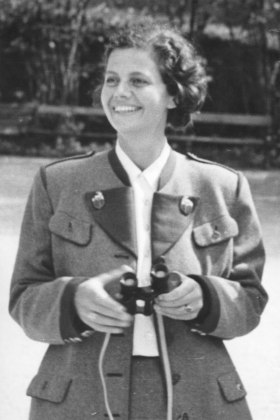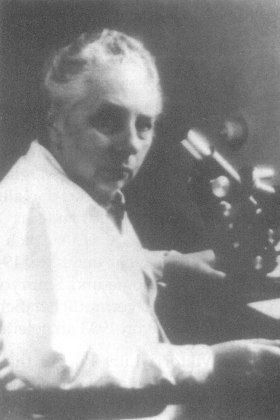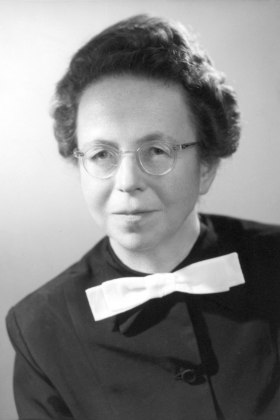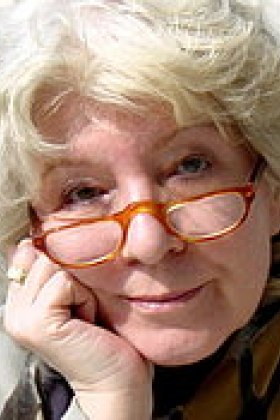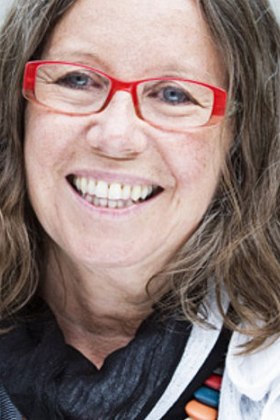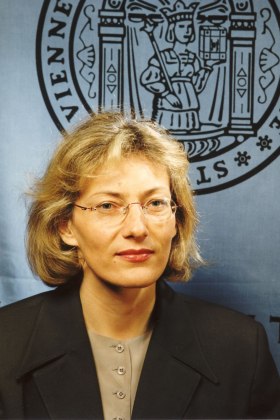Women in Science
At the same time as the first female students enrolled at the philosophical faculty of the University of Vienna in 1897, the first woman also received a doctorate for medicine. Gabriele Possanner von Ehrenthal had already studied in Zurich and Geneva and obtained her doctorate in 1894. Although women were not yet permitted to study medicine in Vienna, she was allowed to repeat the exams for her doctoral viva (Rigorosum). She became the first female doctor in the Austro-Hungarian Monarchy. Although these were the first important steps towards the institution of the university, women still had a long way to go in securing their place in academia.
Pioneers
A sign of progress was the first habilitation of a woman at the University of Vienna. In 1907 the Romance scholar Elise Richter, one of the first female students and doctors, received the teaching license, the venia legendi, against all doubts whether it was acceptable to have a woman teaching men. Elise Richter wrote in her autobiography: “… I was aware that much depended on the first impression of the female high school graduate, the student, the lecturer. I gave the feminists the first piece of evidence […]”.
Twelve further habilitations of female academics followed until 1938. In 1921, fourteen years after the first habilitation of a woman, the Germanist Christine Touaillon received the venia. In 1923, the psychologist Charlotte Bühler, who had already habilitated at the Technical University of Dresden in 1920, was the third woman to receive a teaching license at the University of Vienna. From the 1930s to the 1950s there was approximately one habilitation per year, which included scholars from the humanities as well as the natural sciences.
Particularly due to the arrival of the German Wehrmacht in Austria in March 1938 there was a significant break in the development of the position of women in the sciences – analogous to the expulsion of the first female students. Elise Richter was deported to Theresienstadt and died there in 1942. Charlotte Bühler decided not to return to Austria after she had been abroad at the time of the “Anschluss”. More than half of the habilitated women – i.e. the highly qualified female young talent of all faculties – felt compelled by the National Socialist regime to leave the institution and the country.
The first female professors
The physicist Berta Karlik was the first woman to receive a full professorship at the university in 1956. She had obtained the venia legendi in 1937 and had become an assistant in 1940 and a lecturer in 1942. That this appointment happened almost half a century after the first habilitation of a woman can, among other things, be traced back to the impact of National Socialism. It had severely interrupted the development that the pioneers had achieved since women had first been admitted to the university. At the same time more opportunities had opened up for those – women and men – who had not been subjected to expulsion and displacement, since the chances of becoming a scientific aide or assistant had risen due to racist measures as well as casualties in the Second World War. In 1943 the Reich Ministry for Science, Education and National Culture had decided on further exceptional regulations for women, through which a small number of female students had gotten the chance to receive more qualifications and thus further their careers.
In the tradition and history of women at the University of Vienna the effects of the displacements during the NS regime can be felt paradigmatically in staffing issues, as well as on the level of scientific thought. It becomes especially clear that innovative, democratic and free-thinking people and ideas were suppressed, expelled and murdered.
What traces did this leave in the development after 1945 when it comes to female professors? The classical archeologist Hedwig Kenner was habilitated at the Philosophical Faculty in 1942 and received a full professorship for archeology in 1961. The psychologist Sylvia Bayr-Klimpfinger, who had verifiably been active in the NSDAP, received the newly instituted professorship for pedagogic psychology in 1967. Margret Dietrich, a scholar of theater studies, became a full professor of the Institute for Theater Studies in 1966, an institute that had been founded in the NS regime, during which she had already been an assistant there.
At the faculty of law Sibylle Bolla-Kotek was the first woman to receive a full professorship in 1958. She had obtained the venia legendi in 1947. Carmen Coronini-Kronberg became the first female professor of medicine in 1965. She had lost her title of associate professor in 1945 and had been unregistered in 1948, due to her being an “incriminated” (“belastet”) National Socialist according to the Verbotsgesetz (the law banning National Socialist activities). Margarethe Mecenseffy, a doctor of philosophy and theology, is considered to be the first female tenured professor of the Protestant faculty after receiving a full professorship in 1965. Susanne Heine, who was habilitated in Vienna in 1979 and already held a full professorship in Zurich, took over the tenured professorship for practical theology and psychology of religion in 1996 and thus became the first appointed female professor at the Protestant-theological Faculty. In 1997 fundamental theologian Martha Zechmeister was habilitated as the first woman at the Catholic-theological Faculty and social ethicist Ingeborg Gabriel became the first appointed female professor at this faculty in the same year.
Feminist science and scientists
A push for modernization can be recorded, which also advanced the democratization of the universities. It was driven forward by the active student movement in the 1970s and 80s, the new women’s movement, expansive university politics, a raise in university budgets and structural and academic reforms. Young female academics brought these ideas into the structures and subjects of the university.
In connection with the International Women’s Year celebrated in 1975, female academics from different, mainly humanistic, disciplines – Birgit Bolognese-Leuchtenmüller, Gertraud Diem-Wille, Waltraud Heindl, Hanna Schnedl-Bubenicek, Edith Specht, Ruth Wodak, who later received the first Wittgenstein award, and many others – founded the Autorinnengruppe Uni Wien (female authors’ group). They set an important first example for feminist studies with the publication of the book “Das ewige Klischee” (“The eternal cliché”).
With the biochemist Renée Schroeder, who had been an associate professor since 1995 and also received the prestigious Wittgenstein award in 2003, the Natural Sciences also gained a female professor who was very active in advancing women in science. Although women still were the exception in university structures and academia – even in the second half of the 20th century – their concerns were driven by a different self-conception. Tellingly, they still were pioneers in many ways – as first female professors in various disciplines as well as in reaching higher levels in their careers and university hierarchies as first vice deans, deans and vice rectors. In 2000, Gabriele Moser became the first female vice rector at the University of Vienna.
Even though the university has one of the highest percentages of female professors in Austria, the phenomenon of the leaky pipeline – lower percentages of women in higher levels of hierarchy – is in effect. Among doctorate students and graduates women passed the 50% mark in 2010, but the percentage of female habilitations is only 37%, and in 2013 only 25% of professors were women. Although the University of Vienna is firmly committed to the antidiscrimination and gender mainstreaming stipulated in its development plan, gender equality and diversity remain challenges to be fulfilled at the beginning of the new millennium.
Last edited: 03/05/24
-
Female enrolment
1897–21th Cent. -
“The Muse has had it”
2009–21th Cent. -
The first habilitations of women at the University of Vienna
1905–1957
-
Gabriele Possanner von Ehrenthal
-
Elise Richter
-
Christine Touaillon (geb. Auspitz)
-
Charlotte Bühler (geb. Malachowski)
-
Berta Karlik
-
Hedwig Kenner
-
Sylvia Bayr-Klimpfinger
-
Margret Dietrich
-
Sibylle Bolla-Kotek
-
Carmen Coronini-Kronberg
-
Margarete (Grete) Mecenseffy
-
Susanne Heine
-
Ingeborg Gerda Gabriel
-
Renée Schroeder
-
Gabriele Moser
-
Erna Lesky (geb. Klingenstein)

